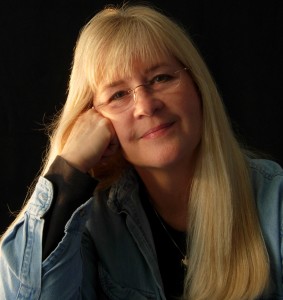Money flows to the writer.
It’s a great rule, created to help new writers from being taken in by scam publishers who make their money by demanding payments from authors rather than from selling books to readers.
When I first began submitting my work, I made a deal with myself: I was submitting only to markets that paid up front. I wasn’t going to settle for “exposure in lieu of payment.” If I wanted “exposure” I could post my stories on my tumblr. I wanted to see cash up front. And I wasn’t going to fill my garage with hundreds of copies of my books that would then be up to me to sell.
For the most part, this is a good rule and it’s served me well. It’s a great feeling to be able to buy things and pay bills with the money I make from my writing.
But I’ve broken this rule a few times with short story anthologies, and I still feel good about it. Here’s why.
Charity anthology
I gave a short story to an anthology in support of animal welfare. I give cash to the Humane Society, so I was also willing to give a story in lieu of cash, in support of a worthwhile cause.
Similarly, some of my writer friends have donated copies of their books or anthologies they are in from their stock (see below) to silent auctions and other fundraisers. Although they’re out the cost of the book, they’ve increased visibility for their work and contributed to a good cause.
As with cash donations, writers need to strike a sustainable balance for giving away stories or hard copies. You will need to decide for yourself how often you’re willing (or able) to give away your work for free. If you’re gaining exposure in a way that counts–for example, appearing in a charity anthology with some big-name authors–or if you feel strongly about the cause you’re fundraising for, it’s worth doing this sometimes.
Payment in royalties
Payment in royalties is a gamble. If the anthology sells well, I stand to make more than I might if I’d simply sold the story for a flat fee. If it doesn’t, though, I risk seeing little if any return on those first publication rights.
The first time I took this gamble, I had a story that was shorter than my usual work. It had been sitting on my hard drive for the better part of a year and I’d been having trouble thinking of where I might place it. I finally found the perfect anthology call, but it paid only in royalties. I decided to take the gamble. It was accepted. Currently, I’m still a little short of what I’d like to have sold it for, but the anthology is still in publication, meaning I will hopefully be seeing more royalties in the future.
Royalties are a lot more common when you’re writing in longer forms. My first novella (written under a pseudonym) also pays entirely in royalties, so I’m waiting to see whether I get more, or less, than I would’ve gotten if I’d cut it down to anthology length and sold it to an anthology for a single up-front payment.
Stocking your work
On occasion I’ve paid more than I’ve earned getting extra copies of the anthologies my work appears in. The first time, I looked at that box of books and my empty wallet and winced a little. In the end, though, having a few copies on hand has proven to be worth the investment.
Earlier this year, I participated in an author launch and came away with cash in hand—even after giving copies to the event organizer, my fellow authors, and our fearless sales-table staffer. I also attended Ad Astra convention in Toronto and sold enough books to pay for my food and travel expenses, making the con much more affordable. The launch party and the convention gave me the ability to promote my work to a wider audience, something I couldn’t have done as easily without stock on hand to sell.
Another factor is when acquaintances, co-workers and party guests ask me: oh, you’re a writer? Can I see your work? I’ve gotten my anthologies into a number of hands just by saying: yes, I have some copies on hand, this one is $15…
So how much stock should you have? I’ve had authors recommending five copies of each work as their ideal stock number. Other factors to consider include how much money you can afford up front, how much space you have to store stock, how many anthologies you’re in, and how marketable each book is (for example, in-person I attend more sci-fi events than romance events, so I stock more of my sci-fi themed work.) I also find that I get better shipping prices on 10-20 books than I do on 5; fortunately, I have family and friends who lay claim to most of the difference, which helps to keep my first stock shipment affordable.
Writing for fun
I enjoy online role playing, fan fiction, talking about themes in my favourite comics, and other kinds of writing that don’t pay me money. I’ve scrutinized my hobbies to avoid wasting time I could spend on paying writing, and have decided that if I accomplish my professional writing goals, I am just as entitled to spend my relaxation time on role playing as on video games, crafts or any other form of entertainment. Sometimes, when I’ve edited a story for the tenth time or a conclusion just isn’t coming together or I’ve received a disappointing rejection, I feel that I hate writing, and ask myself why I’m doing this. And then I hammer out a goofy little fan-fic, fall in love with my craft all over again, and the next morning feel inspired when I return to my original work.


